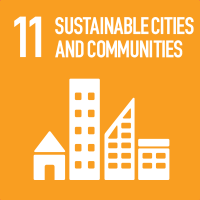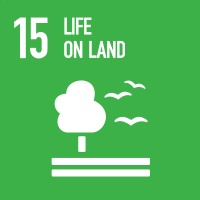Studying at the University of Verona
Here you can find information on the organisational aspects of the Programme, lecture timetables, learning activities and useful contact details for your time at the University, from enrolment to graduation.
Study Plan
This information is intended exclusively for students already enrolled in this course.If you are a new student interested in enrolling, you can find information about the course of study on the course page:
Laurea in Studi strategici per la sicurezza e le politiche internazionali - Enrollment from 2025/2026The Study Plan includes all modules, teaching and learning activities that each student will need to undertake during their time at the University.
Please select your Study Plan based on your enrollment year.
1° Year
| Modules | Credits | TAF | SSD |
|---|
2° Year activated in the A.Y. 2024/2025
| Modules | Credits | TAF | SSD |
|---|
2 modules among the following3° Year It will be activated in the A.Y. 2025/2026
| Modules | Credits | TAF | SSD |
|---|
2 modules among the following| Modules | Credits | TAF | SSD |
|---|
| Modules | Credits | TAF | SSD |
|---|
2 modules among the following| Modules | Credits | TAF | SSD |
|---|
2 modules among the following| Modules | Credits | TAF | SSD |
|---|
Legend | Type of training activity (TTA)
TAF (Type of Educational Activity) All courses and activities are classified into different types of educational activities, indicated by a letter.
Public ethics (2024/2025)
Teaching code
4S000570
Teacher
Coordinator
Credits
6
Language
Italian
Scientific Disciplinary Sector (SSD)
M-FIL/03 - MORAL PHILOSOPHY
Period
Sem. 1A, Sem. 1B
Courses Single
Authorized
Learning objectives
The course aims to offer the conceptual tools to understand ethical questions that our time poses, with particular attention to contemporary transformations of the social ties, the issue of community, the relationship between vulnerability, security and risk in the social dimension of human experience. Students will acquire knowledge of the main themes of public ethics and its contemporary lines of development; will be able to formulate autonomous judgments on the themes of the course; will be able to communicate the topics of the course to specialist and non specialist audiences; will be able to relate ethical issues to operational contexts, in connection with prevention and management of geopolitical, environmental, social, digital and sanitary risk.
Program
Every week 1.5 million people in the world move towards urban areas in search of opportunities and a better life. The human species thus finds its own specific form of coexistence in the urban space, which can become at the same time the privileged observation point for the transformations of politics and society. The first part of the course will be dedicated to investigating the transformations that have made the city in ancient times the place of politics and public affairs, in modernity the place of work and production, in contemporary times the place of freedom and consumption. Intertwining moral philosophy, political philosophy and urban planning, in the second part of the course we will ask ourselves whether urban planning is really the solution to the problems of large metropolises, and whether the urban and architectural settings currently in vogue are able to adapt the design to the needs of the community. The cases of urban 'regeneration' presented in the last part of the course will serve to verify whether these corrective cases can help the city to rediscover its human scale.
Bibliography
Didactic methods
The first part of the course, dedicated to the genealogy of urban transformations, will mainly use frontal teaching, useful for building solid theoretical reference points for the students in their second year of the course. The second part, instead, will include the examination of case studies taken from the book by Jane Jacobs, The Death and Life of Great Cities, (ed. Einaudi) and will be addressed through the seminar presentation of some chapters of the text by the students, appropriately divided into groups. The third part of the course, concerning urban regeneration, will finally be entrusted to public meetings with the entities of the Verona area engaged in urban regeneration actions. For the course we will use the following texts: H. Arendt, Vita Activa, Bompiani, 2017; H. Arendt, Socrate, Raffaello Cortina, 2015 pp. 23-70 J. Jacobs, The Death and Life of Great Cities. An Essay on American Metropolises, Einaudi, Turin, 2009, (selected parts only); J. Jacobs, Città e Libertà, Eleuthera, Milano, 2020. Additional bibliographical material will be distributed during the course for further study. This material will not be necessary for the exam.




